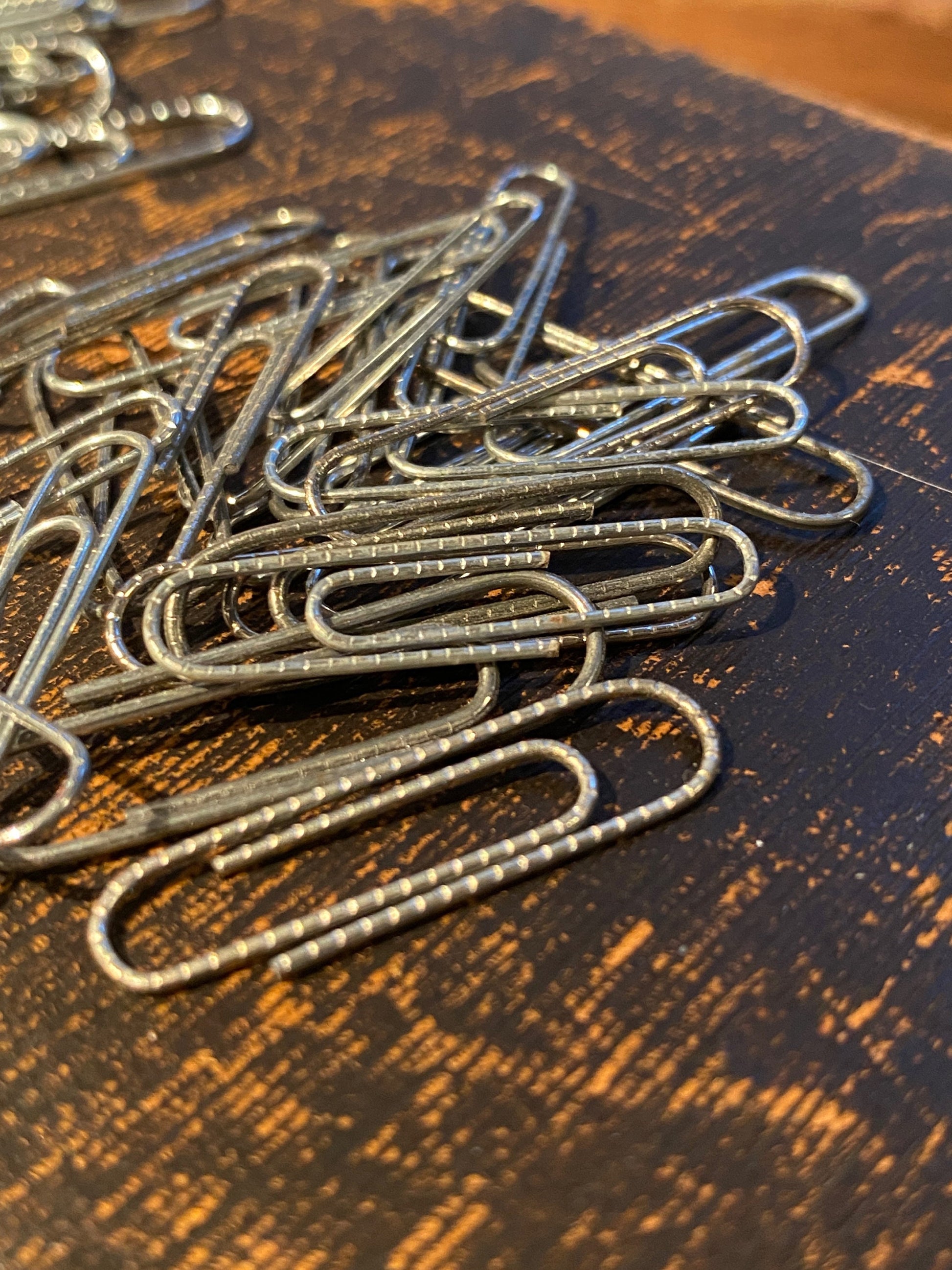shopjunket
One dozen small or Jumbo sized Gem paper clips
One dozen small or Jumbo sized Gem paper clips
Couldn't load pickup availability
(TL;DR: we geek out over paper clips:)
I remember seeing this particular variation of paper clip as a child - and they've long struck me as having been a relic of the 60s, so, it was fascinating to learn that they were patented waaay back in 1927... but then, advertised for one year in the 70s? Strange stuff.
And hey, when you google 'non-skid paper clips' (without giggling, because juvenile humor), see if you can find a box that isn't also labeled 'premium' -- that's right! These are *special* paper clips. And, of course, they cost more online -- because, apparently, some of you have come to appreciate the expansive difference between smooth wire and wire that's been abraded in just such a way as to make your pages hold together more/better.
See how innovation works? Fascinating. We've made these paper clips available for you by the dozen in your choice of sizes: small (standard, #1) and 'Jumbo.' But remember - these aren't just *any* standard or Jumbo paper clips: they're premium.
---
Ok. Now: what is it about paper clips that have so enraptured us?
Easy: everyone knows what they are (in most cases, they're not precious or rare, they're used by all ages, and there's a strong commercial market for them).
This means that when we share that manufacturing a single average paperclip generates 3 times its weight in carbon dioxide equivalent emissions ('CO2-e'), most of us can wrap our heads around those numbers, and we can easily apply manufacturing emissions to a single small item that we use at home, school, and work alike: procurement specialists requisition them in businesses & governments, school administrators add them to supply lists for entire groups of faculty, and the rest of us get them wherever (online or at the big box in a now-dizzying array), or, maybe we just always have enough on hand to dig one out of the junk drawer...
What we haven't typically been taught to consider, however, is how quickly small things add up when multiplied against a nation's population. For example: Americans buy 11 Billion new paper clips every year. Manufacturing a year's worth of paper clips (just the ones we actually purchase, and assuming that they're all manufactured using 100% recycled steel -- which they're not) releases somewhere in the neighborhood of 10,000 TONS of CO2-e into the atmosphere... something that, even if you're still resistant to the idea of climate change, does not bode well for your lung health (whether COPD or asthma, pollution is taking us out in ever greater numbers... also, CO2-e data source: www.epa.com/warm; analytics at shopjunket.com/data).
So if we've been buying these things at a steady clip (ha!) of 11B each year, that means that we should have some of the more than 200 Billion just in the 21st century available for reuse... right? So 1. where are they, and 2. why aren't we using them?
To answer those questions: 1, they're all over. We fail to even notice them in alleyways, at the backs of desk drawers, tucked into conference room corners (remember those?!), swept up in dustbins, filed, recycled, tossed... perfectly useful items, 10K tons of embodied energy invested for every year's supply, invisible to us because we don't see them for their value as offsets against the need to keep making them.
Question 2: that we are continuing -- as a system -- to manufacture 11 Billion of something that already exists while throwing the others away -- and doing so at the expense of retaining the environmental capacity to manufacture things we actually *do* and will continue to need (healthcare supplies, for example - and food) makes no logical sense.
And this isn't just about paper clips: all of our commodity and durable goods are embodied energy and matter, which, if harnessed and relaunched into commerce systems, is *directly circular* commerce that involves no industrial processes, no smoke stacks, drilling, mines, or fracking. Recognizing everything that already exists as having embedded utility value is the paradigm shift we need to move in lockstep toward a green economy, to create green domestic jobs, to engage in individual carbon capture... to act on climate, individually *and* collectively: because small things add up... but not if we're doing them alone.
As a symbol, the lowly paper clip gives us a frame of reference, an organizing principle and a vision for change. In a culture of excess -- when what we actually face is not scarcity, but the overwhelm of too much, too many, too fast -- perhaps having one small thing that we can focus on and manage is a very good place to just...begin.
If, together, we crack the 'how do we ethically, efficiently, and profitably* aggregate and redistribute these small useful items?' code for paperclips, we'd also be able to crack it for just about anything else.
*'profitably' is a non-negotiable, because our economic system expects us to support ourselves via dollars... no money, no mission (and no jobs creation). And, because we understand that there's a social cost to carbon emissions -- a cost estimated to be in the hundreds of dollars per ton -- the value of used paperclips is in that embedded value, and in supporting the labor and care taken to preserve them, to get them to central processing, to make them available for easier access (and in so doing, to help us shift how we think about the most sustainable goods and materials possible: the ones that already exist).
---- end paper clip rant
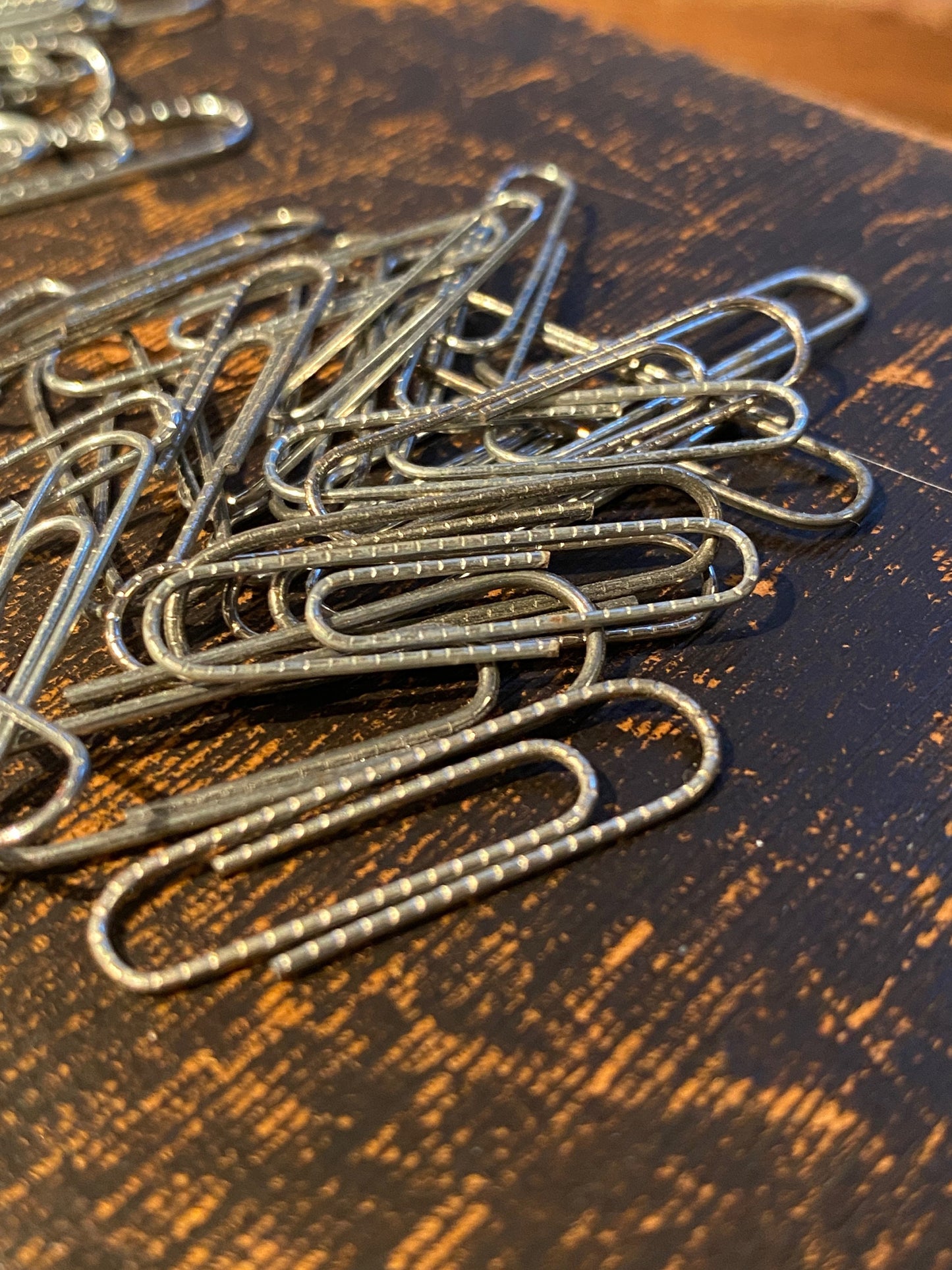
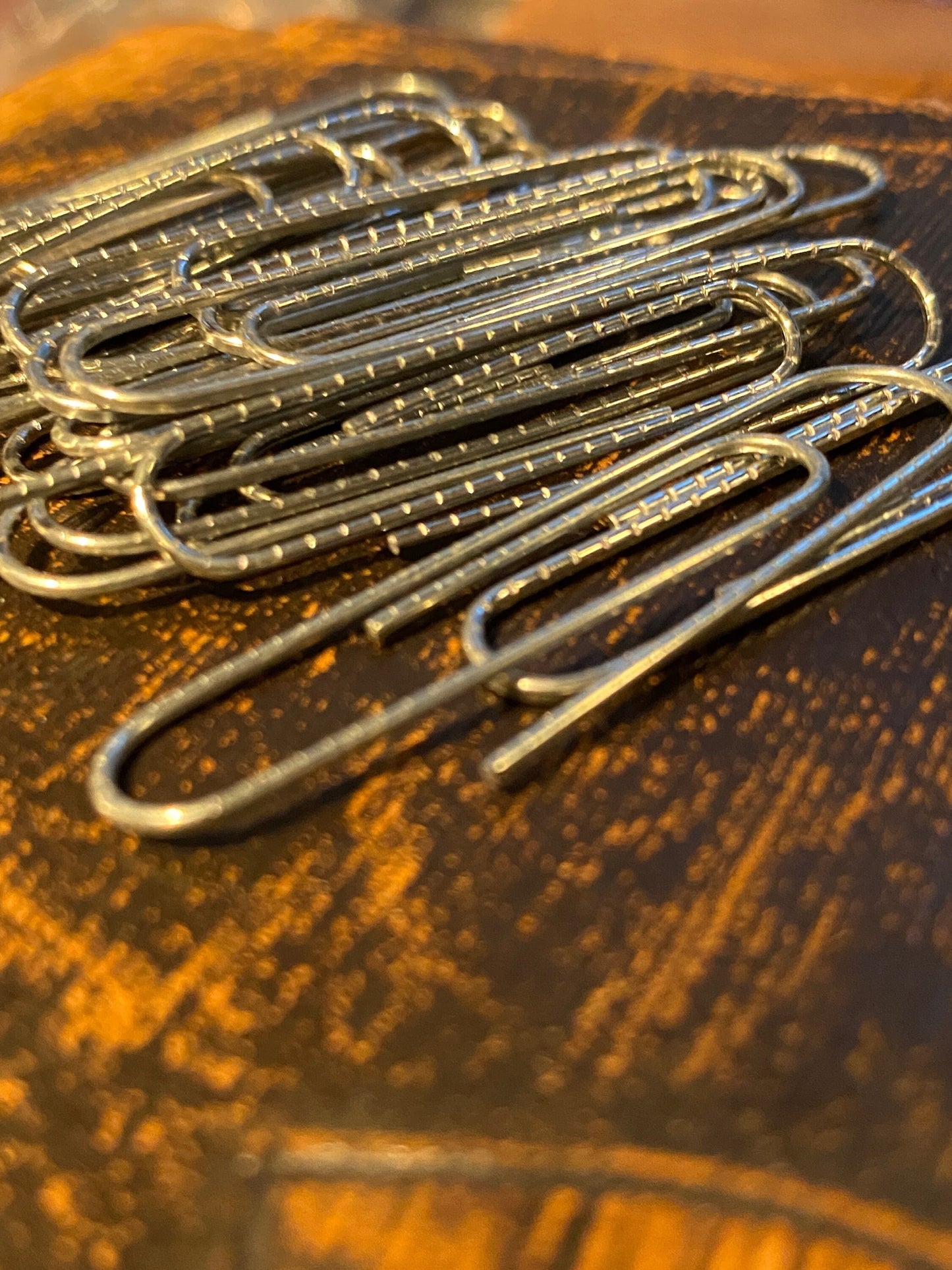
-
Shipping
The Fine Print• 100% secondhand packaging
• intentionally slow in-house service levels
• ground shipping only
This is climate-competent commerce, and we talk a bit more about each of these strategies on our 'official' shipping policy page:
-
Proactive Satisfaction + Refunds
Refund policyWe have adopted a 'generally generous' approach to fulfilling many of our product listings, as sending a wee bit extra can avoid costly errors & 'fix it' shipments (besides, we find most folks appreciate the occasional freebie).
.
That said, if you would prefer to avoid the extras, we will gladly rightsize or downsize your order on request (product price would remain the same because more labor + less product = wash). If you prefer this option, please include a detailed order note to specify the quantity you wish to recieve (i.e. 'please send precise count of 7 for XYZ product').
.
As a rule, we discourage returns - but we also don't abide crappy customer experiences. To initiate issue resolution in the event that we miss the boat with your order (gaps happen!), head to our refund policy page (linked here - and at the bottom of any page) to get started.
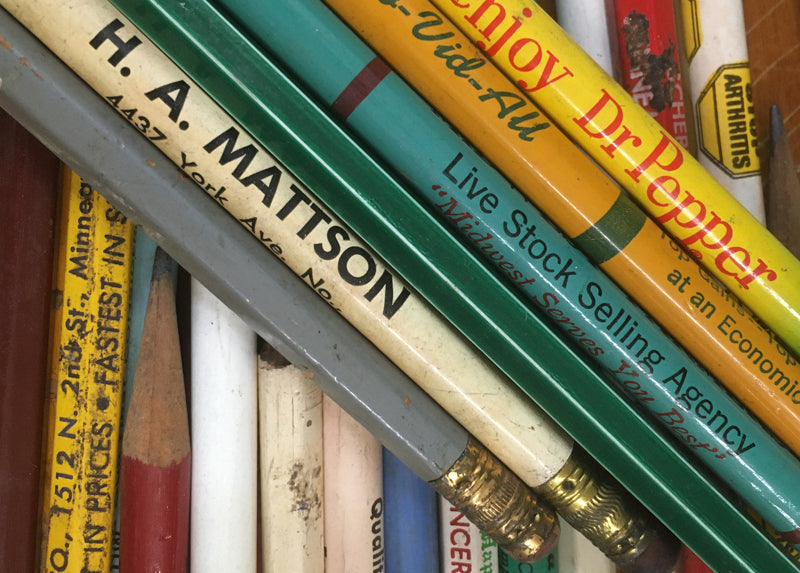
'This is a phenomenal shop! Every little detail screams "love, care, quality, reduce, repurpose, reuse, upcycle!" Cannot recommend highly enough! I was blown away! My favorite new shop of 2022!'
-Kimberly, Long Beach CA
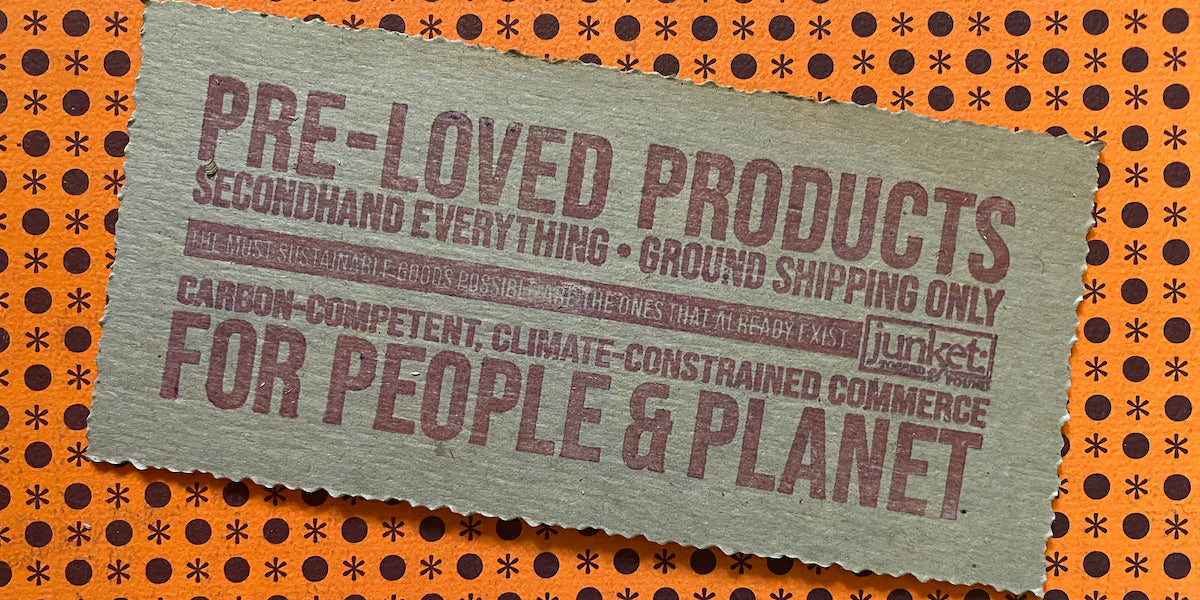
secondhand everything:
because the most sustainable goods possible are the ones that already exist.

